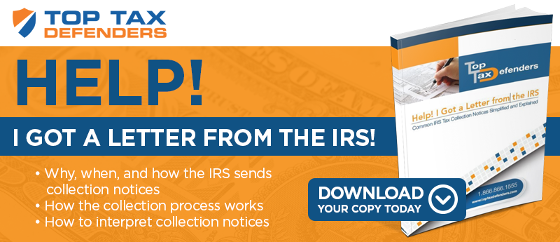
Filing your taxes could leave you with an IRS bill that you cannot afford right now. Rather than ignoring what you owe or exhausting your bank account to pay it, you may be able to settle your IRS debt through other means. These six options allow you to file your taxes even if you cannot afford to pay your taxes by the yearly April deadline.
File and Pay What You Can
Your simplest option would be to file your taxes and pay what you can toward your bill. A good faith upfront payment on your tax bill shows the IRS that you have every intention of settling it even if you cannot pay in full today.

It also lets you avoid the penalty for filing your taxes after the deadline and reduces your late payment penalty. This option likewise can reduce your interest charges on what you owe the IRS.
Use a Credit Card or Loan
If you cannot afford to pay what you owe in cash or by check, you can always use a credit card to zero out what you owe the IRS. The interest rate charged by your credit card company could actually be lower than what you would be charged by the IRS if you let the amount carry over from month to month.
You also might consider taking out a loan to pay your taxes. People have utilized personal, equity, or family loans in the past to pay the IRS in full by the tax deadline.
Ask for an Installment Agreement
The IRS may be open to setting you up on an installment plan if you cannot pay your taxes in full when you file. To request this agreement, you should call the IRS or go to the IRS.gov website.
You should then use IRS Form 9465-FS to formally request this setup. Once approved, you can make monthly payments on your IRS debt until the account is settled in full. The IRS will charge you a user fee for an installment agreement, however.
Request an Extension to Pay
Depending on your circumstances, the IRS may give you an extension to pay your taxes. Most extensions are given under the Fresh Start Initiative program, which could allot you up to 120 additional days to pay your tax debt.
You can go to IRS.gov and use Form 1127-A to request an extension. Your request must be submitted by April 17, 2017 to receive an extension on your 2016 taxes.
Financial Hardship Delay
If you are experiencing financial hardships, you may ask the IRS to allow you to delay payment on your tax bill. These hardships extend to circumstances like:
- Lack of money to pay everyday expenses
- Unemployment or job termination
- Sickness
- Prolonged disability
- Homelessness
If you are granted an extension due to financial hardships, you could still incur penalties and interest. You also could incur a tax levy against any assets you have if you fail to pay what you owe at some point in the near future.
Negotiate
Also depending on your circumstances, the IRS may be willing to negotiate with you on your tax bill. It would rather receive some payment rather than no payment at all.
You could negotiate to pay a lump sum on a lower amount. You also could use the Offer in Compromise, or OIC, option, which is similar to negotiating your tax bill to a lower amount. The OIC is designed to help people who have limited financial means yet can pay a reasonable amount to settle their IRS tax debt.
These options can help you settle your tax bill and stay in the good graces of the IRS. You are encouraged to consider which one is right for you and utilize it appropriately by the April tax filing deadline.



